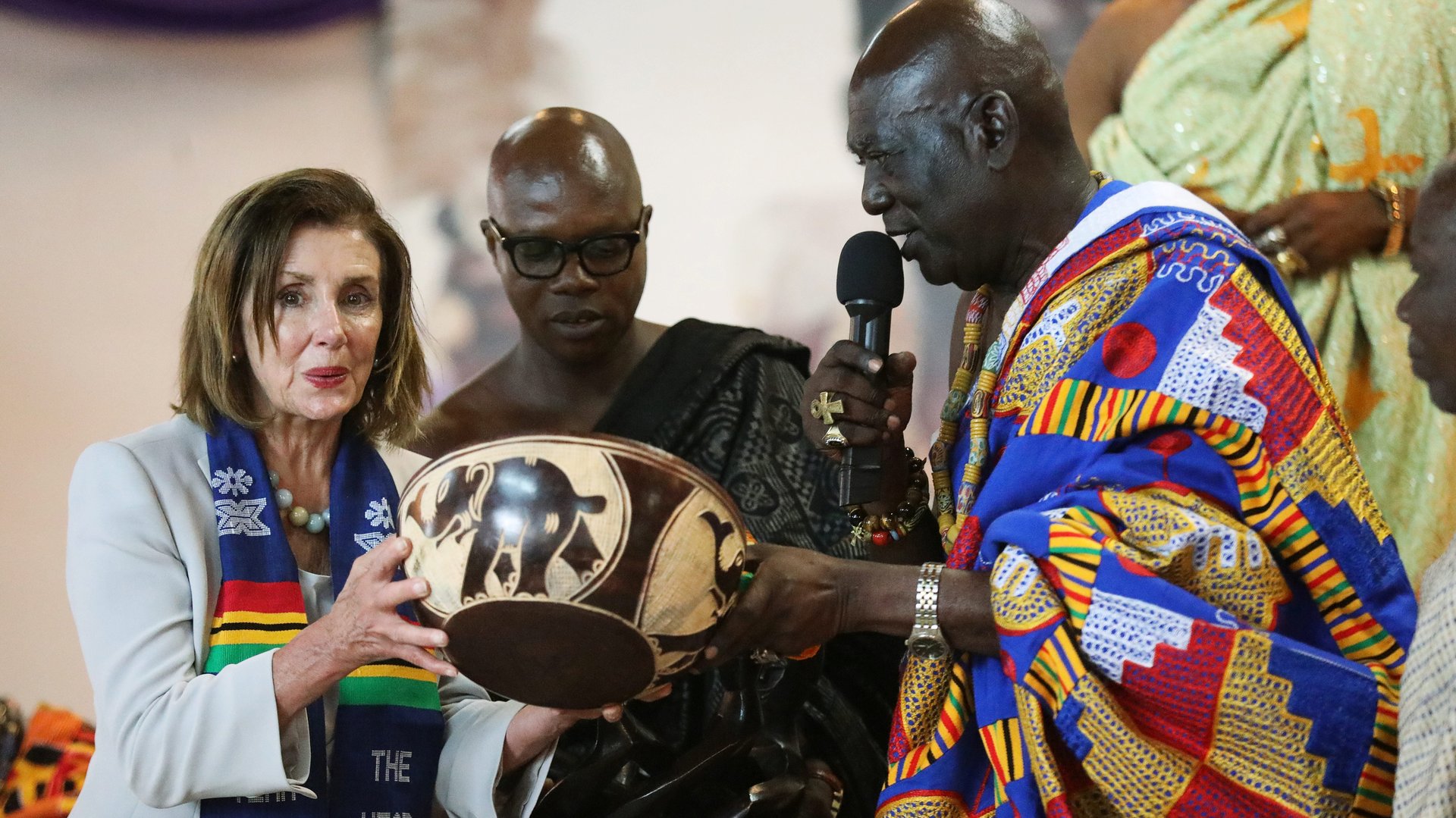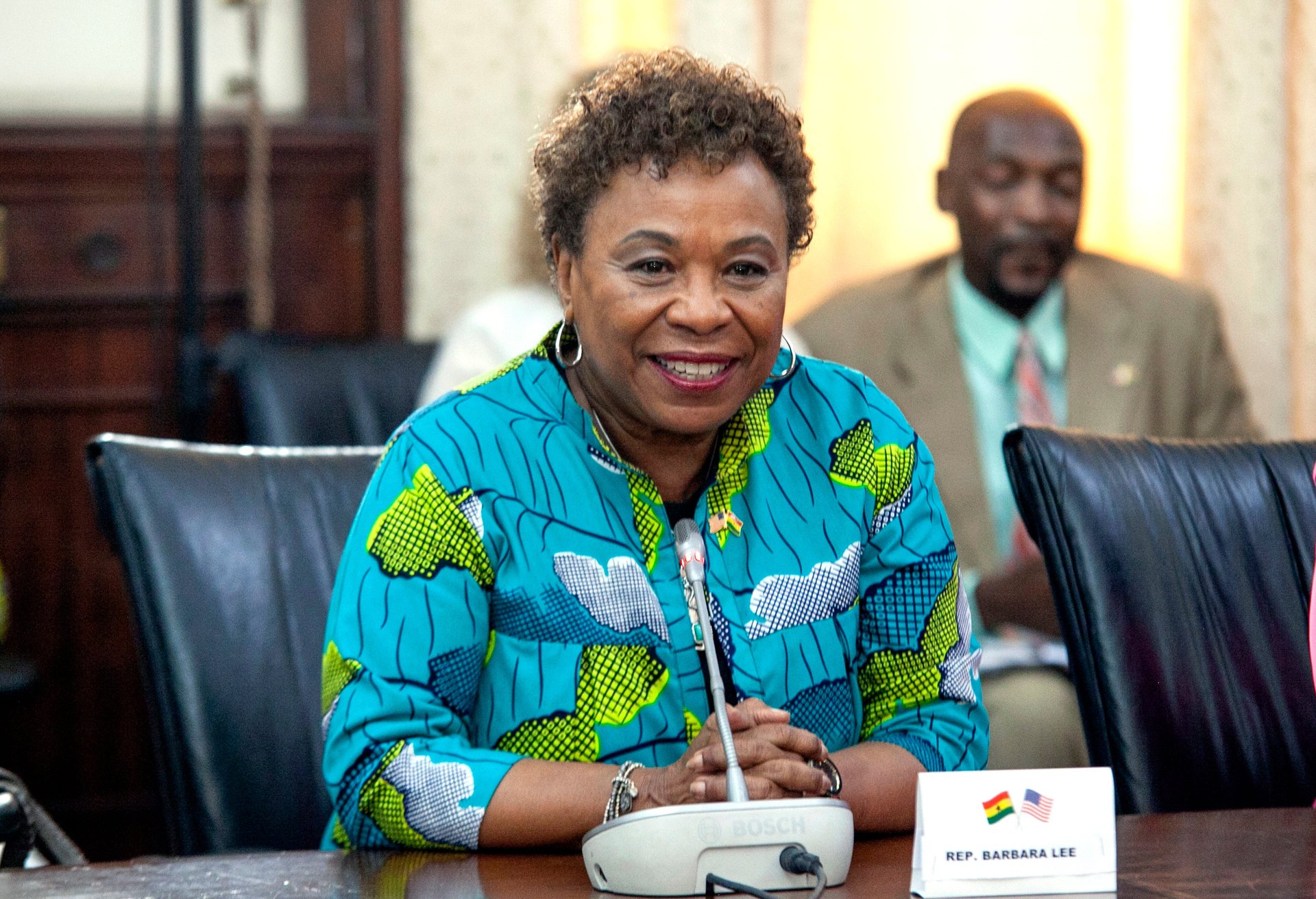The timely symbolism of a “400 years” visit to Ghana by Nancy Pelosi and black US congress members
As Donald Trump marked the 400th anniversary of American democracy in Virginia, top Democrats who had stayed away from the commemoration were observing a 400th anniversary of a different kind – one inextricably linked to the founding of the United States.


As Donald Trump marked the 400th anniversary of American democracy in Virginia, top Democrats who had stayed away from the commemoration were observing a 400th anniversary of a different kind – one inextricably linked to the founding of the United States.
In southern Ghana, US House speaker Nancy Pelosi and 13 members of the Congressional Black Caucus were observing the 400th anniversary of the arrival of enslaved Africans in Virginia. The lawmakers visited the Cape Coast and Elmina slave castles, where hundreds of thousands of captured Africans were forced onto ships never to return.
“Our souls have been touched by what we saw there…These profound places are a sobering testament to humanity’s capacity for great evil and also a helpful reminder of the capacity for great resilience, renewal and strength of a people,” Pelosi said in an address to Ghana’s parliament on Wednesday (July 31).
The US delegation to Ghana included civil rights icon John Lewis and Ilhan Omar, two on a long list of politicians of color at the receiving end of racist remarks by the current US president.

Their arrival in Ghana comes at a time of heightened racial tensions in the US as Trump tweeted his second racist remarks in as many weeks targeted at congressman Elijah Cummings of Baltimore. Earlier this month, the president asked four congresswomen of color, including Omar, to go back where they came from and his supporters chanted “send her back” at the mention of Omar’s name at a rally. This is despite the fact that all the Congresswomen are US citizens.
Ghana, a significant place of origin for enslaved Africans in the Americas, has launched a year-long commemorative initiative called “The Year of Return”. Ghana’s president, Nana Akufo-Addo said at the Washington DC launch in October 2018 that the commemoration is meant to encourage people of African ancestry to make the “birthright journey home for the global African family.”
Africans had been in the Americas region (including the United States) long before 1619 but that year is widely regarded as the commencement of the African slave trade to North America.

For Ghana, these symbolic high profile visits (including the Obama family in 2009), boost its vaunted image as a destination for heritage tourism. As the popularity of ancestry DNA tests rise, African Americans looking to retrace their origins find a country with a crafted story to sell.
Throughout 2019, it is embarking on a number of programs aimed at attracting people of African descent in the Americas to the country to boost its tourism and ultimately, establish residency.
The myth of Ghana as home for black Americans is steeped in the founding in the modern nation in 1957, as the first black African country to gain independence from British colonial rule.
Leading civil rights leaders including Martin Luther and Coretta Scott King attended Ghana’s Independence Day celebration on Mar. 6, 1957 as its first president Kwame Nkrumah laid a pan-Africanist vision that transcended the shores of Africa.
Since then, Ghana has been home to African Americans thinkers and activists including Maya Angelou, Rita Marley, W.E.B Du Bois and George Padmore. Du Bois and Padmore are buried in Accra.
Sign up to the Quartz Africa Weekly Brief here for news and analysis on African business, tech and innovation in your inbox